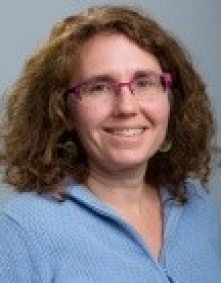Faculty Spotlight: Marla Segol, Associate Professor and Director of Undergraduate Studies
One GGS Professor's Foray into the History of Sex Magic in Kabbalah

Since joining UB in 2012, Professor Marla Segol has proven to be a force in both the Departments of Jewish Thought and Global Gender and Sexuality Studies. Her latest book, Kabbalah and Sex Magic: A Mythical Ritual Genealogy was recently published by The Pennsylvania State University Press. We caught up with Professor Segol to discuss her research into how the body and the divine interact, and the ways her writing process was informed by her peers in GGSS.
You might be wondering what exactly sex magic is? According to Segol, "sex magic is ritualized human sexuality meant to access divine power for good. Its ritual practices are based in conventional religious feelings of love between human and divine, but they add to that by imagining this love erotically." If you think such erotically charged experiences are a thing of the past, you're mistaken. As Professor Segol noted, "While it is not so much in the headlines these days, sex magic is alive and well."
As Segol’s research has indicated, practices and beliefs around sex magic "address deep human and social needs" and are "patterned on views of the cosmos that change over time" with "its structure and purpose likewise chang[ing]." Tracking this evolution is a key aspect of the generative journey that culminated in Kabbalah and Sex Magic: A Mythical Ritual Genealogy's publication.
The community of scholars within GGSS and across the UB campus has shaped the questions informing Segol's research practices with her fellow faculty members serving as a sounding board throughout the process of developing this project through its completion.
Her peers have offered Segol a variety of lenses through which to view the texts she works with, aiding her in taking an even more interdisciplinary approach to her work. “This department has been incredibly supportive, and they've been an incredible theoretical resource because I come from religious studies. There's certainly gender studies in religious studies, but they've been very useful in helping me draw on theories that come from other disciplines as well," she said.
Conversations with the rest of the faculty have not only encouraged Segol to explore a range of methodologies and perspectives, but they have also influenced the very direction of her inquiries. "My colleagues have been incredibly helpful as interlocuters, and they've actually been steering my research in terms of thinking about the gender of the divine. [...] Talking with my colleagues has drawn my attention to the need for reparative reading not just around the biblical cannon but also of the ritual texts that come after the bible," she said.
Additionally, she expressed gratitude for the Gender Institute for their assistance. "This book was supported in part by a grant from the Gender Institute, which, ... is definitely a part of our larger [GGSS] community."
If this glimpse of Segol's latest work piqued your interest, Kabbalah and Sex Magic: A Mythical Ritual Genealogy is available for purchase. Students can also keep an eye out for her course offerings this spring.